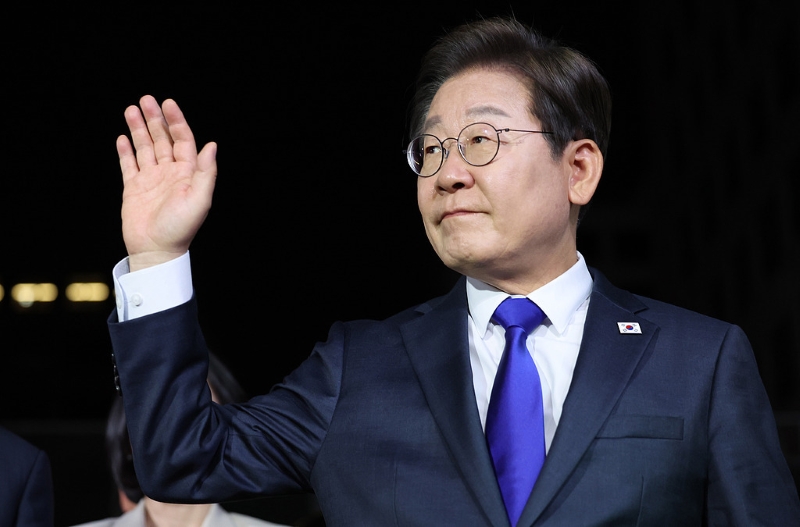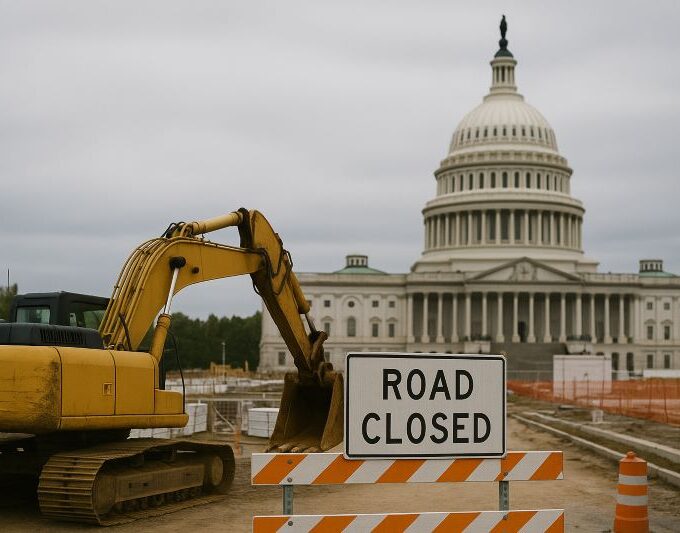At 8 p.m. local time on the 3rd, voting concluded in South Korea’s 21st presidential election. According to a joint exit poll released the same evening by the country’s three major broadcasters—KBS, MBC, and SBS—Lee Jae-myung, the presidential candidate from the Democratic Party of Korea, is projected to win by a landslide with 51.7% of the vote. Kim Moon-soo of the People Power Party and Lee Jun-seok of the Reform New Party are expected to receive 39.3% and 7.7%, respectively. As of 11:40 p.m., all three broadcasters had reported that Lee’s victory was “effectively confirmed.”
The Korea Herald noted on the 3rd that many voters hoped the election would turn a new page for a nation shaken by months of political turmoil and division. The vote also brought an end to a 171-day leadership vacuum triggered by the impeachment of Yoon Suk-yeol, which was passed on December 14 last year. The president-elect could formally assume office as early as the morning of the 4th.
Local media including JoongAng Ilbo and The Korea Times expressed hope that the election would mark the latest chapter for the country. However, some citizens remained cautious. The BBC quoted one young South Korean voter as saying, “This election could be the start of improvement—or things getting worse. I just hope this time, once a president is elected, I won’t have to brace for breaking scandals. I really want them to just do their job quietly and properly.”
Yoon Suk-yeol and His Wife Cast Their Votes
According to Yonhap News Agency, more than 14,000 polling stations across South Korea opened promptly at 6 a.m. on the 3rd. Voters from all walks of life—ranging from newly eligible 18-year-olds to elderly citizens over 100, from wildfire victims to residents of remote islands—made their way to the polls, reflecting the nation’s high level of interest in the presidential election. A 70-year-old man surnamed Kim, who lives in the northern part of North Gyeongsang Province—an area severely affected by wildfires in late March—said he is currently staying in a temporary shelter but made sure to vote. “Everyone in our village voted,” he said.
On the 3rd, many young South Korean voters took to social media to post photos showing their ink-stamped fingers alongside idol photocards or pictures of their pets, sparking a wave of personalized voting “certification” trends. Speaking to the BBC on the same day, a 21-year-old Korean voter said he previously had little interest in politics, “but due to recent events and scandals, I started paying attention.”
Former President Yoon Suk-yeol, who was impeached in December last year, cast his vote on the morning of the 3rd at a polling station in Seoul’s Seocho District. According to JoongAng Ilbo, Yoon declined to answer a series of questions from reporters at the scene, including whether he would accept a prosecutorial investigation, why he refused a summons, and whether he would apologize to the public for the snap election triggered by his impeachment. He merely looked back with a faint smile and offered no response. His wife, Kim Keon-hee, similarly avoided comment when asked whether she still denied receiving a Chanel bag and a Graff necklace, choosing instead to lower her head and leave quickly. Yonhap News noted this marked Kim’s first public appearance in 53 days, during which she maintained a largely expressionless demeanor.
According to Newsis, multiple presidential candidates called on citizens to vote on the 3rd. Lee Jae-myung wrote on social media, “If the people make a wise choice today, I will repay them with a Korea that truly serves them.” Kim Moon-soo described the election as “the last opportunity to defend liberal democracy, the rule of law, the market economy, and the South Korea-U.S. alliance.”
Yonhap also reported that South Korean police activated their highest-level emergency response protocol on election day. Over 28,000 officers were deployed nationwide, including more than 4,500 in Seoul alone. Bomb-sniffing dogs were dispatched to sweep candidate rally sites and areas around U.S. military bases in South Korea. Additionally, Newsis reported that more than 7,600 officers were stationed at 254 vote-counting centers nationwide. Between 6 a.m. and 5 p.m. that day, police received 614 election-related incident reports, including 175 involving disruptions or interference with voting.
President-Elect Expected to Take Office Today
Yonhap News reported on the 3rd that preliminary figures show voter turnout in South Korea’s presidential election reached 79.4%—the highest level in 28 years. Exit polls conducted by the country’s three major broadcasters—KBS, MBC, and SBS—as well as JTBC, Channel A, and MBN, all indicated a clear lead for Lee Jae-myung, with support beyond the margin of error. According to the BBC, Lee garnered 55% of support among female voters, compared to 39.2% for Kim Moon-soo. Among male voters, the gap narrowed to approximately 9%.
Under South Korean law, because this election was held due to a vacancy in the presidency, the National Election Commission will convene immediately after vote counting concludes to confirm the president-elect. Once approved, the president’s term begins immediately. According to Korean media, the new president is expected to formally assume office as early as 7 a.m. on the 4th. Reports from The Korea Economic Daily and Chosun Ilbo state that the president-elect is likely to visit the National Cemetery and then hold a simplified inauguration ceremony at the National Assembly. All administrative tasks typically handled over a two-month transition period will need to be completed in a single day.
News outlet news1 commented that assuming office immediately after election poses a heavy burden for the incoming president. Following the inauguration, the president is expected to first appoint the prime minister and key aides, and then gradually assemble a full cabinet.
The Korea Herald reported that 7 out of 21 cabinet positions are currently vacant, including the Minister of National Defense. Former President Moon Jae-in, who also assumed office immediately after winning a special election, took 76 days to hold his first full cabinet meeting—at which point all cabinet members had been appointed by him.
In a June 3 editorial, JoongAng Ilbo noted that the election took place exactly six months after the political crisis triggered by Yoon Suk-yeol last December. After half a year of uncertainty, the paper stated, South Korea finally sees the first signs of normalization. However, due to the hastily organized election, many procedural aspects failed to meet public expectations. Apart from three televised debates, no policy forums among candidates were held, limiting voters’ ability to assess each candidate’s leadership capabilities. The editorial called for unity, urging the winning side to reach out to those who supported other candidates, and for the defeated side to show maturity in accepting the results.
Chosun Ilbo echoed this sentiment in its own editorial, warning that South Korea’s economy and national security are “on the edge of a cliff.” The Bank of Korea has revised the nation’s 2024 growth forecast downward from 1.5% to 0.8%, amid global geopolitical instability. “Faced with unprecedented internal and external crises,” the paper wrote, “we can no longer afford to be divided.”
“South Korea’s Future Hinges on This Election”
“The new president will face multiple tests,” Yonhap News reported on the 3rd, noting that he carries the burden of restoring national order in the wake of political turmoil and impeachment triggered by Yoon Suk-yeol. Beyond addressing pressing economic and security crises, the president must also urgently work to ease tensions between conservative and progressive camps and heal deepening divisions across South Korean society.
According to Agence France-Presse (AFP), the incoming president faces a daunting agenda. As a heavily export-dependent economy, South Korea is vulnerable to shifts in global trade dynamics. At the same time, the country is grappling with one of the world’s lowest fertility rates. The BBC also highlighted immediate diplomatic challenges awaiting the new leadership. At the top of the list are “critical” negotiations with the Trump administration—talks that go beyond tariffs and directly touch on the future of the U.S.-South Korea defense alliance. In addition, the new government must define its approach to China. As news1 noted, while reinforcing ties with its traditional ally the United States, South Korea must also pursue pragmatic cooperation with its largest trading partner, seeking a diplomatic balance in a rapidly changing geopolitical landscape.
“South Korea’s future hinges on this election,” declared an editorial in The Korea Times on the 3rd. It noted that voter frustration had peaked during the campaign, with many disillusioned by the lack of satisfactory candidates and disheartened by the political and economic fallout of December’s events. The editorial stressed that this election is a direct outcome of South Korea’s turbulent modern history—in just the past decade, two sitting presidents have been forced to step down before completing their terms. “This vote must mark the end of that unfortunate cycle,” the paper wrote, framing the election as a turning point for South Korea’s political and economic stability.













Leave a comment